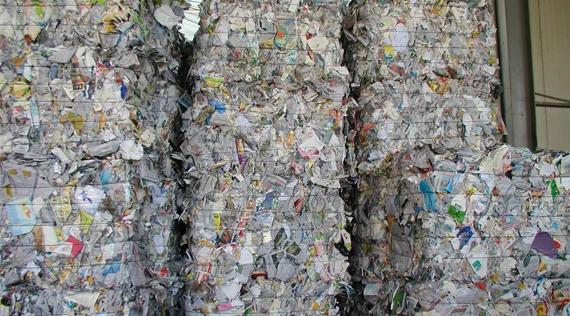
NEW DELHI (Scrap Monster): Next time you pick up a plastic toy or small kitchen appliance, be careful- hazardous plastic might be lurking inside!
A recent study by Toxics Link, a not-for-profit environmental organisation, reveals that plastic laden with harmful flame retardants might be contaminating the entire recycled plastic stream.
The report ‘WEEE Plastic and Brominated Flame Retardants’, divulges that almost 300 tonnes of plastic with toxic Brominated Flame Retardants (BFRs) are added to the recycling stream every day in India.
This gets mixed with other plastic and then reaches us in the form of new products.
The study done by Delhi based NGO Toxics Link, under the Sustainable Recycling Industry (SRI) project, and supported by various organisations including -- World Resource Forum and Swiss Confederation -- studied the recycling of WEEE Plastic (plastic from e-waste- one of the fastest growing waste stream globally) in the country.
The research found that most of the plastic, containing flame retardants, is being mixed with ‘clean’ plastic during recycling process, especially in the informal plastic recycling operations. As BFRs are loosely bound with plastic, it gets released during usage. So every time kids play with toys made of contaminated plastic, she or he might be inhaling or ingesting BFRs.
What are Brominated Flame Retardants?
Brominated flame retardants are chemicals added to plastic parts of electronic gadgets like computers, televisions, cell phones, printers and refrigerators etc. to make it less flammable. Many of these bromine based chemicals are highly toxic. BFRs like Polybrominated Diphenyl Ethers (PBDEs) have been banned in many countries globally as these are chemicals of high concern.
Rapidly increasing levels of BFRs have been found in sediments, marine animals and human. This indicates significant potential for damage to ecology and human health.
Research in laboratory animals has linked PBDE exposure to an array of adverse health effects including thyroid hormone disruption, permanent learning and memory impairment, behavioural changes, hearing deficits, delayed puberty onset, decreased sperm count, fetal malformations and, possibly, cancer.
The study reveals that India currently generates almost 1 lakh tonnes of this contaminated plastic annually, which is expected to go up to 1.7 lakh tonnes in 2018. Most of this huge quantity of plastic reaches the informal recycling sector, where majority of it is mixed with other plastics and recycled with no safety or health precautions.
This contaminated plastic is then used to make new products, and sold without any warnings or labels.
The study was conducted in Delhi, one of the largest plastic markets in the country. The city receives waste plastic from across the country and processes it in many of its recycling hubs like Mundka, Kamruddin Nagar, Karawal Nagar and Vishwas Nagar.
The operations in many of the units located in these areas revealed the dangers of exposure to workers, as occupational health and safety norms are not followed here.
“92 percent of the workers in these areas are not aware of the hazards that they face and hence do not take any precaution. The dust and releases during the processes may have high concentrations of BFRs ”, said Satish Sinha, associate director, Toxics Link.
Courtesy: www.thehindu.com
| Copper Scrap View All | |
| Alternator | 0.31 (0) |
| #1 Copper Bare Bright | 3.65 (0.02) |
| Aluminum Scrap View All | |
| 356 Aluminum Wheels (Clean) | 0.71 (-0.01) |
| 6061 Extrusions | 0.62 (-0.01) |
| Steel Scrap View All | |
| #1 Bundle | 475.00 (0) |
| #1 Busheling | 495.00 (0) |
| Electronics Scrap View All | |